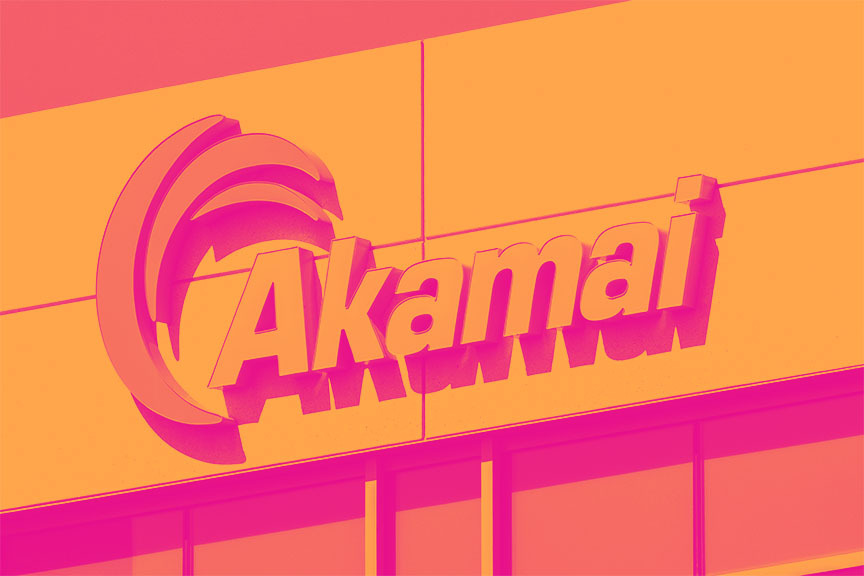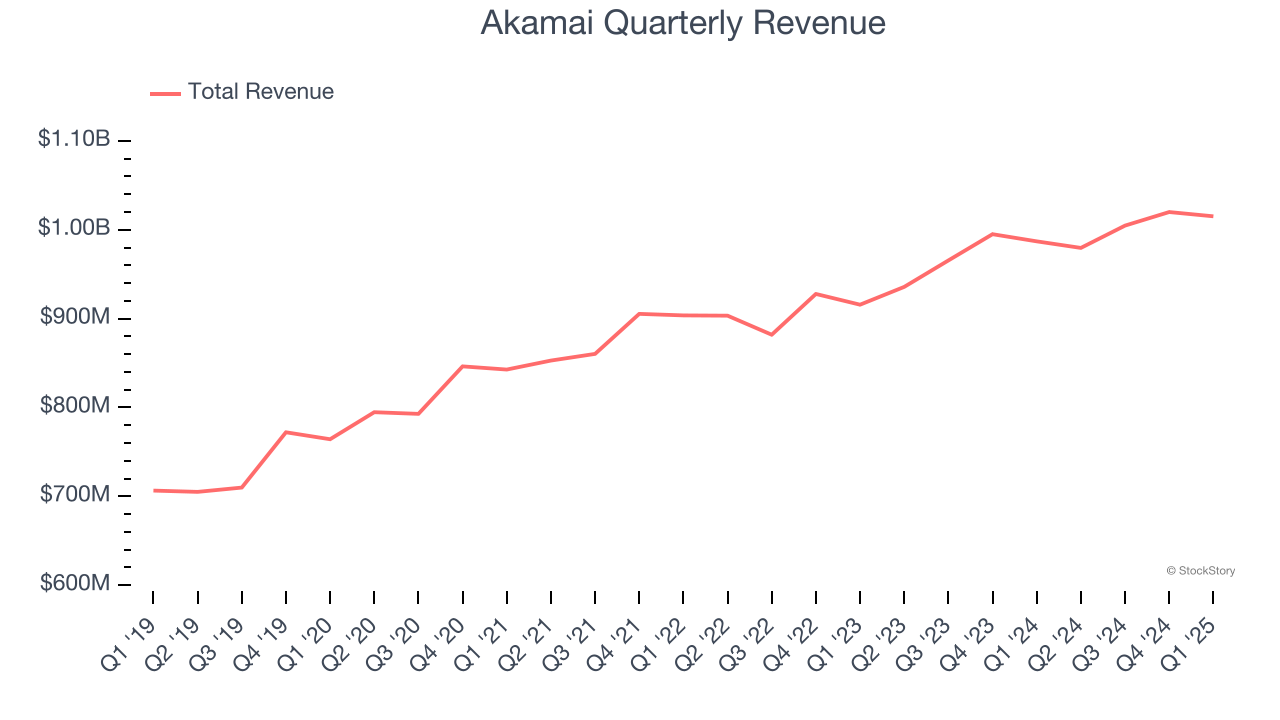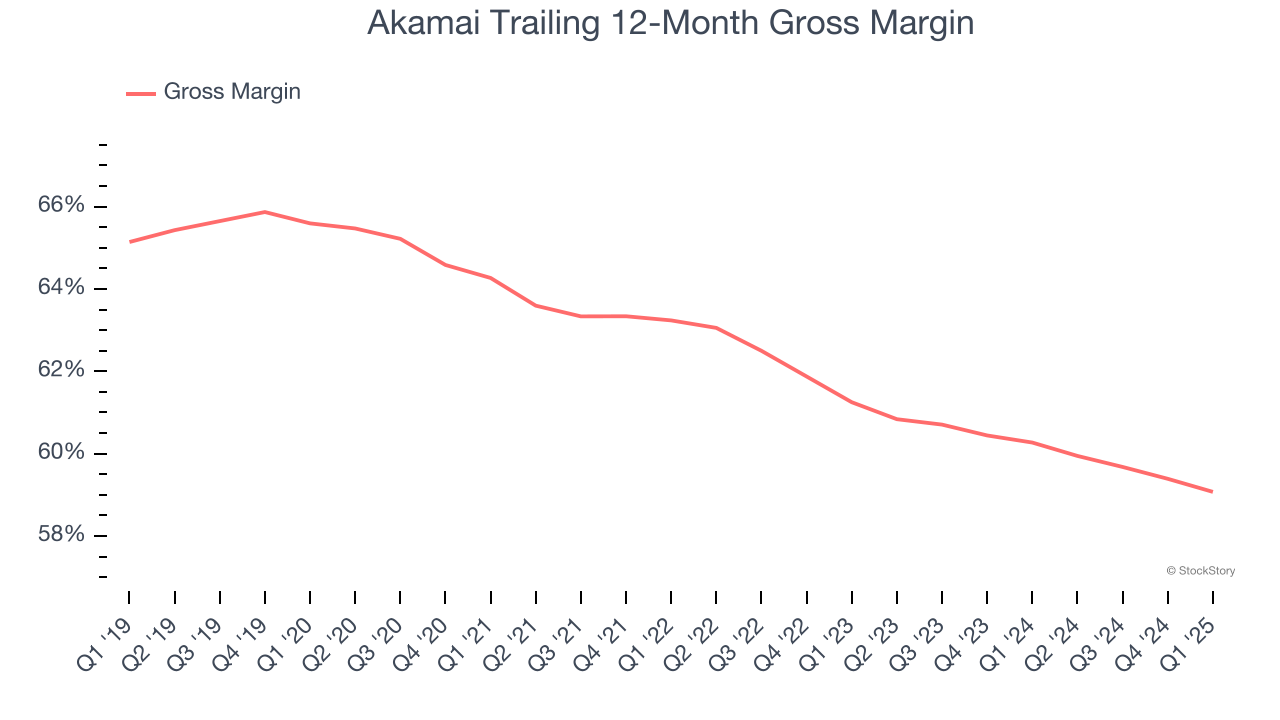
Over the last six months, Akamai’s shares have sunk to $78.33, producing a disappointing 18.9% loss while the S&P 500 was flat. This might have investors contemplating their next move.
Is now the time to buy Akamai, or should you be careful about including it in your portfolio? See what our analysts have to say in our full research report, it’s free.
Why Do We Think Akamai Will Underperform?
Even with the cheaper entry price, we're swiping left on Akamai for now. Here are three reasons why we avoid AKAM and a stock we'd rather own.
1. Long-Term Revenue Growth Disappoints
A company’s long-term sales performance is one signal of its overall quality. Any business can put up a good quarter or two, but many enduring ones grow for years. Regrettably, Akamai’s sales grew at a weak 4.5% compounded annual growth rate over the last three years. This was below our standard for the software sector. 
2. Low Gross Margin Reveals Weak Structural Profitability
For software companies like Akamai, gross profit tells us how much money remains after paying for the base cost of products and services (typically servers, licenses, and certain personnel). These costs are usually low as a percentage of revenue, explaining why software is more lucrative than other sectors.
Akamai’s gross margin is substantially worse than most software businesses, signaling it has relatively high infrastructure costs compared to asset-lite businesses like ServiceNow. As you can see below, it averaged a 59.1% gross margin over the last year. That means Akamai paid its providers a lot of money ($40.93 for every $100 in revenue) to run its business. 
3. Long Payback Periods Delay Returns
The customer acquisition cost (CAC) payback period measures the months a company needs to recoup the money spent on acquiring a new customer. This metric helps assess how quickly a business can break even on its sales and marketing investments.
Akamai’s recent customer acquisition efforts haven’t yielded returns as its CAC payback period was negative this quarter, meaning its incremental sales and marketing investments outpaced its revenue. The company’s inefficiency indicates it operates in a highly competitive environment where there is little differentiation between Akamai’s products and its peers.
Final Judgment
Akamai falls short of our quality standards. Following the recent decline, the stock trades at 2.8× forward price-to-sales (or $78.33 per share). This valuation multiple is fair, but we don’t have much confidence in the company. There are superior stocks to buy right now. Let us point you toward the most entrenched endpoint security platform on the market.
High-Quality Stocks for All Market Conditions
Market indices reached historic highs following Donald Trump’s presidential victory in November 2024, but the outlook for 2025 is clouded by new trade policies that could impact business confidence and growth.
While this has caused many investors to adopt a "fearful" wait-and-see approach, we’re leaning into our best ideas that can grow regardless of the political or macroeconomic climate. Take advantage of Mr. Market by checking out our Top 9 Market-Beating Stocks. This is a curated list of our High Quality stocks that have generated a market-beating return of 183% over the last five years (as of March 31st 2025).
Stocks that made our list in 2020 include now familiar names such as Nvidia (+1,545% between March 2020 and March 2025) as well as under-the-radar businesses like the once-micro-cap company Tecnoglass (+1,754% five-year return). Find your next big winner with StockStory today.
